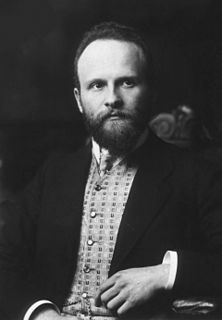A Quote by Lauren Groff
In my totally unscientific yet enthusiastic survey of Communal Experiments Throughout American History, I've discovered that the thing most likely to break up said experiments is: Sex, all that murky, dark, dirty gunk simmering beneath human relations.
Related Quotes
We do some experiments in humans, some in mice, and there are some questions that can only be answered in nonhuman primates. It's true that you can't immediately say that those experiments will translate into human health, but nevertheless, it is obvious that having an understanding of human memory is going to be important for human health.
...the proposed air force and army experiments were designed so that many animals would suffer and die without any certainty that this suffering and death would save a single human life or benefit humans in any way at all; but the same can be said of millions of their experiments performed each year in the United States alone.
I think it's science and physics are just starting to learn from all these experiments. These experiments have been carried out hundreds and hundreds of times in all sorts of ways that no physicist really questions the end point. I think that these experiments are very clearly telling us that consciousness is limitless and the ultimate reality.
The [peppered-moth] experiments show the effects of predation on the survival of the dark and of the normal forms of the Peppered Moth in a clean environment and in one polluted by smoke. The experiments beautifully demonstrate natural selection--or survival of the fittest--in action, but they do not show evolution in progress, for however the population may alter in their content of light, intermediate or dark forms, all the moths remain from beginning to end Biston Betularia.
You like to explore things, and your parents don't like it because it gets the pots and pans dirty, and because it's noisy - but for you it's fun, you're resting. You're actually doing experiments... Just tell your parents that they're experiments, and you want to become a scientist, and then they won't stop you from doing anything you want.
The thing I like so much about short stories is that there isn't as much of an investment of time so I'm free to experiment more. If it doesn't work out, I've only lost a week or two of work. If I screw up a novel I've lost at least a year's worth of work. But the nice thing is that those experiments with short stories can be carried over to novels when the experiments do work.
During the time that [Karl] Landsteiner gave me an education in the field of imununology, I discovered that he and I were thinking about the serologic problem in very different ways. He would ask, What do these experiments force us to believe about the nature of the world? I would ask, What is the most. simple and general picture of the world that we can formulate that is not ruled by these experiments? I realized that medical and biological investigators were not attacking their problems the same way that theoretical physicists do, the way I had been in the habit of doing.






































